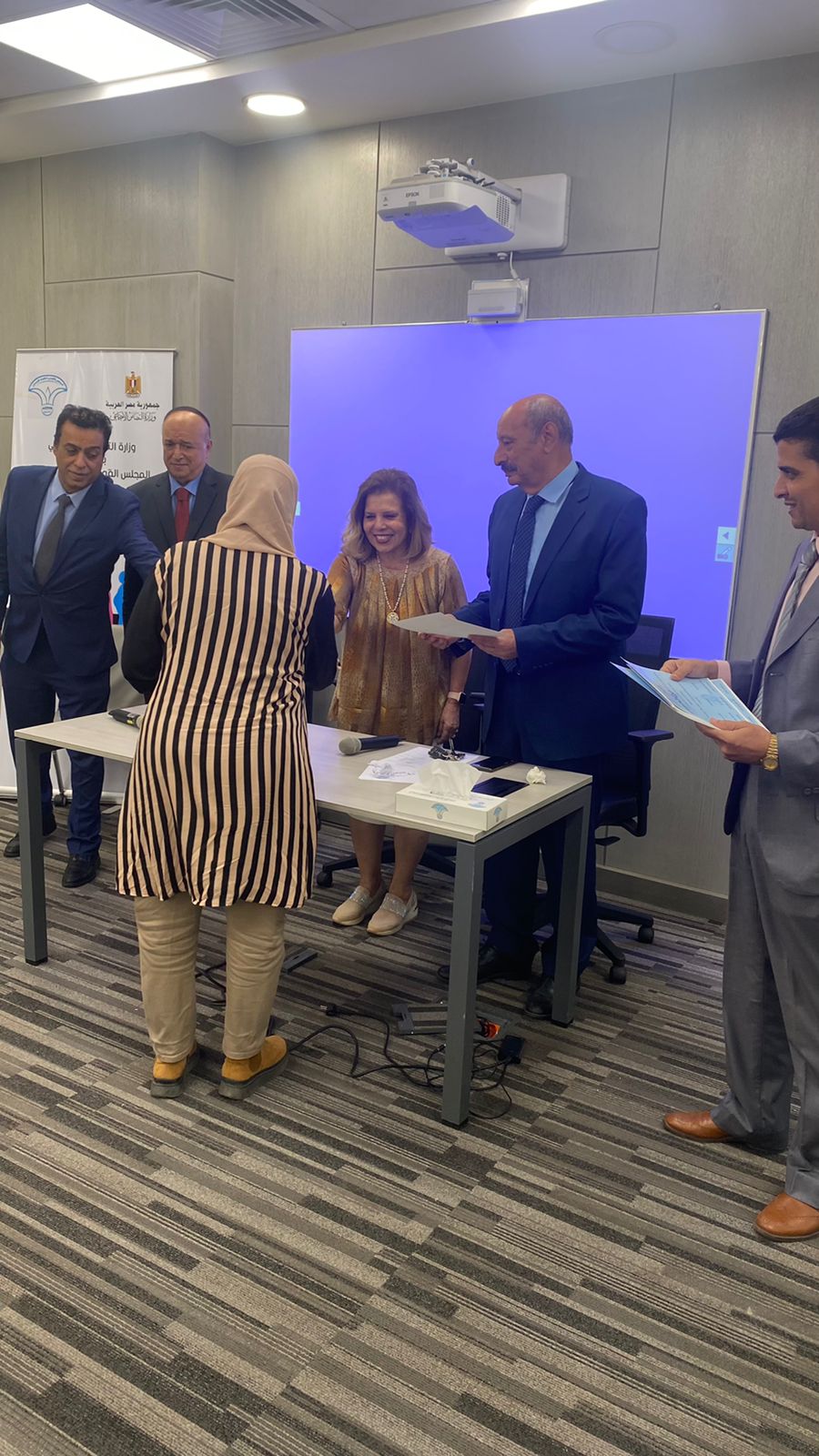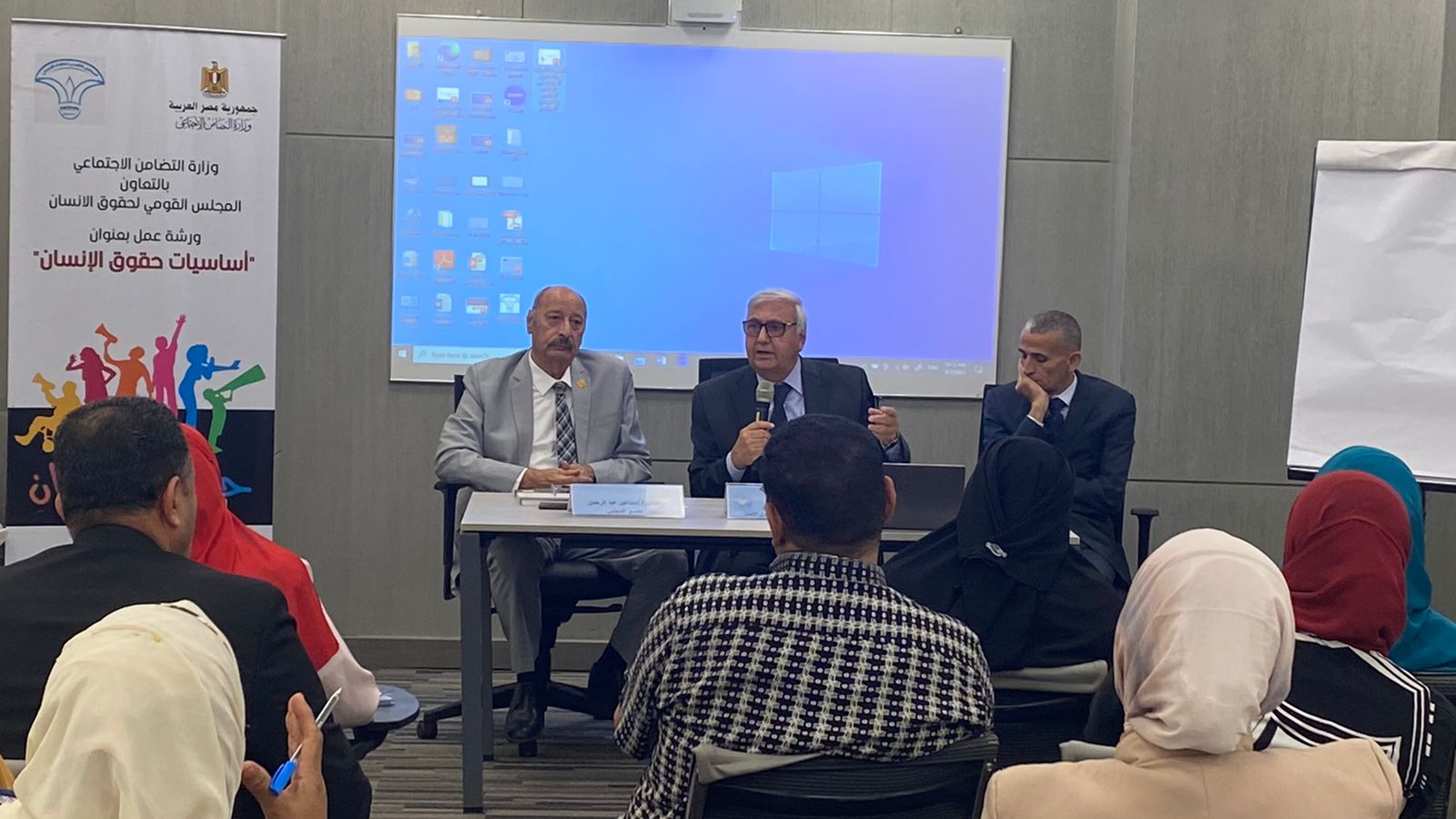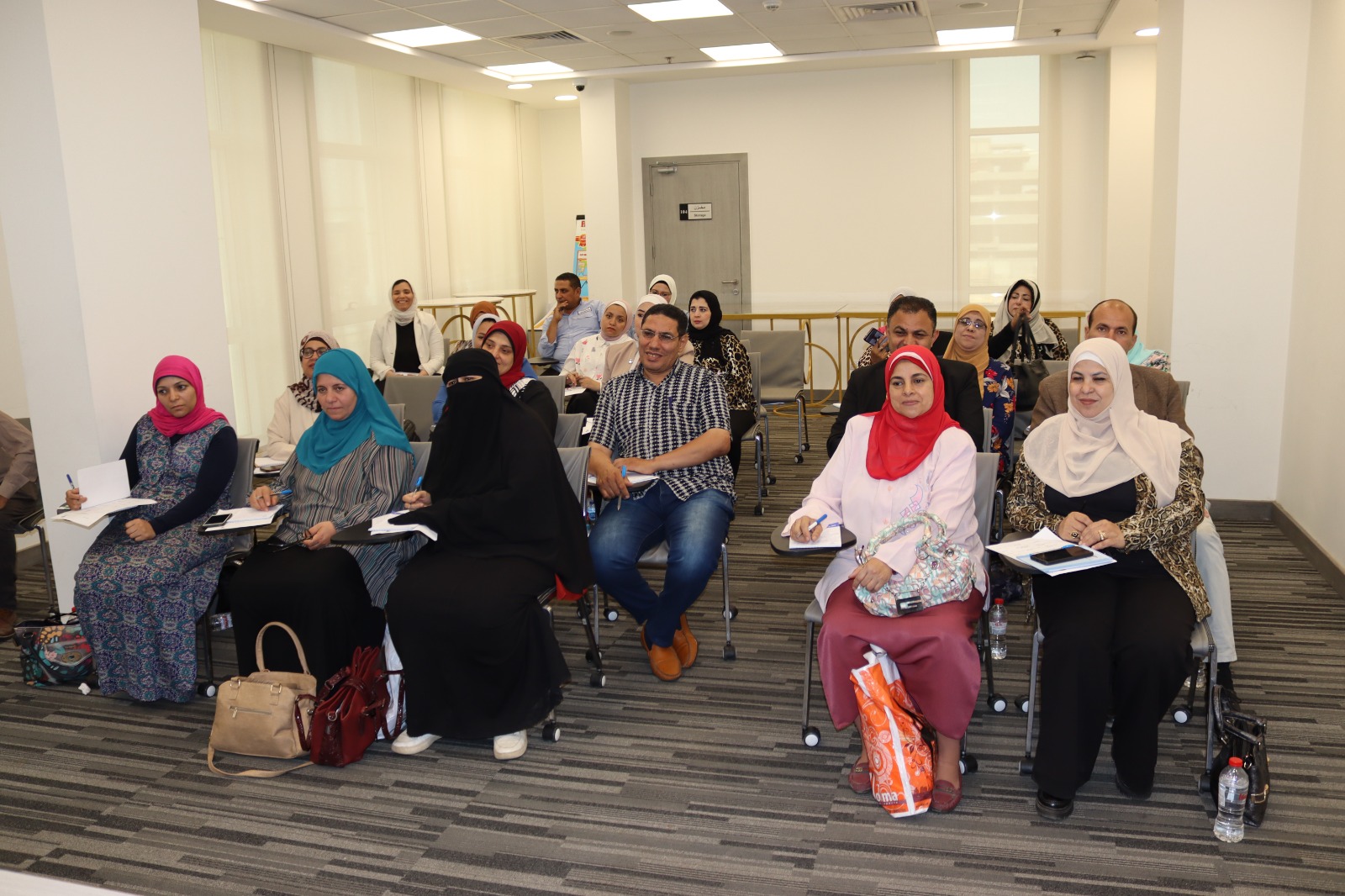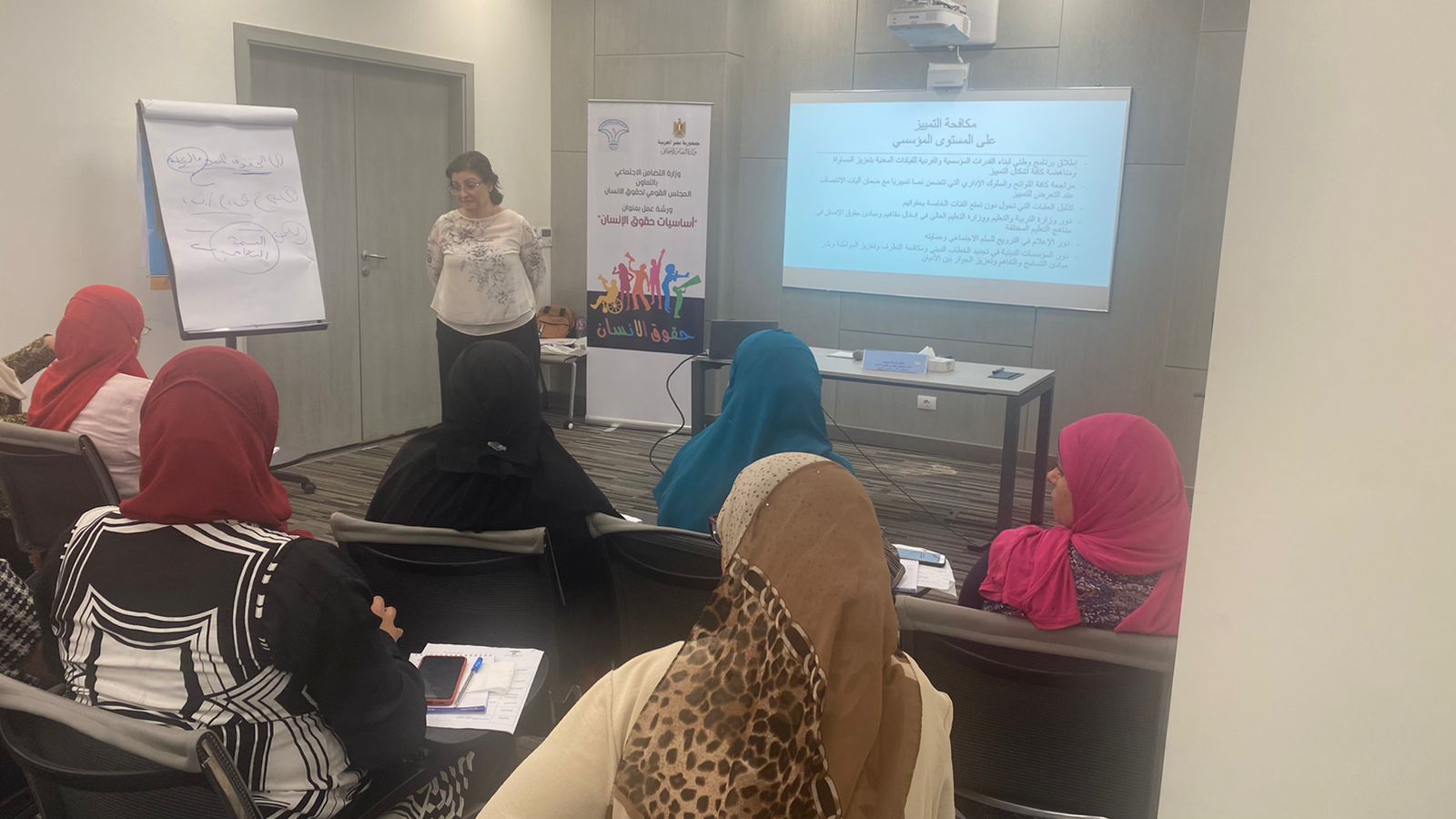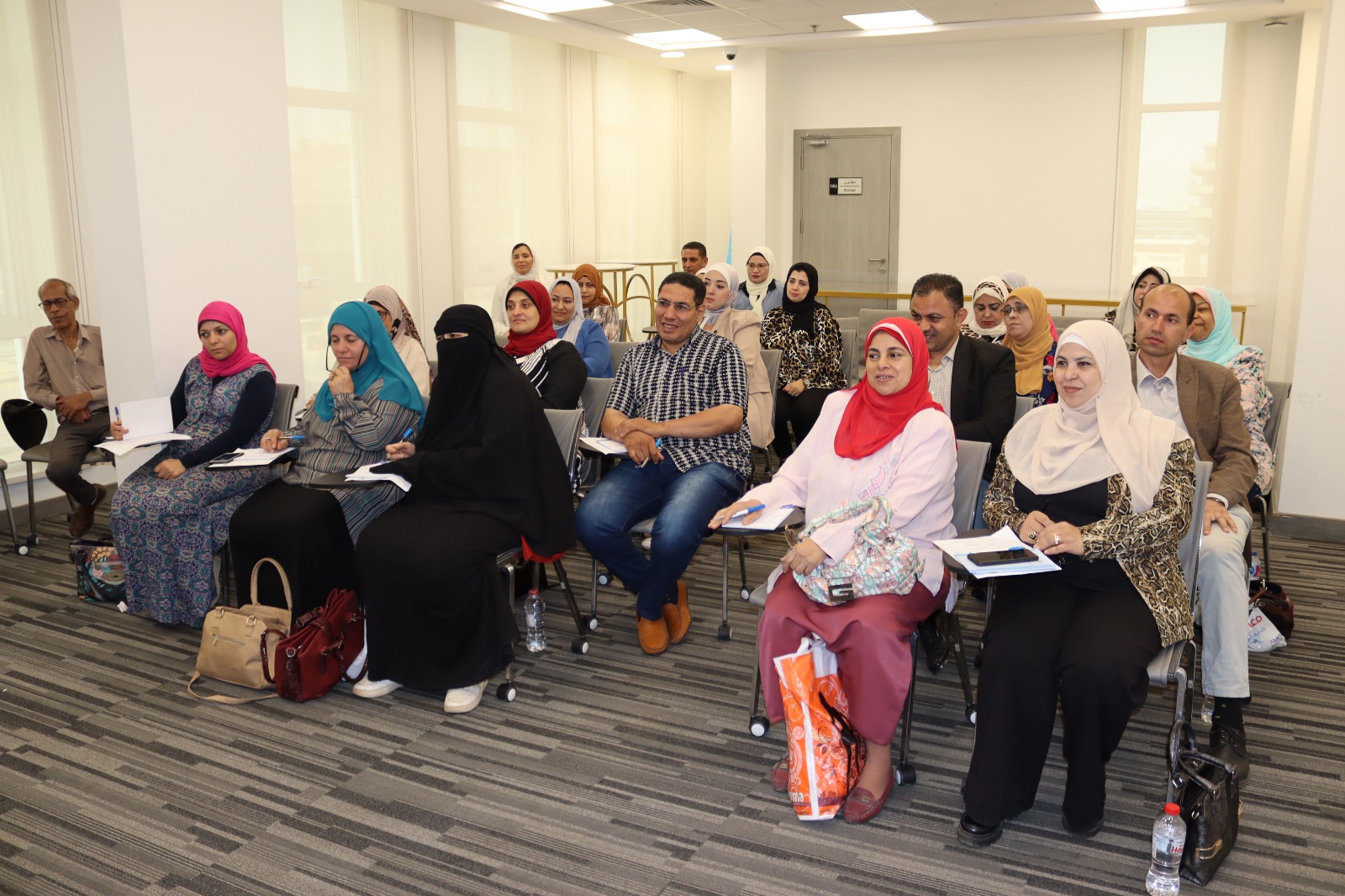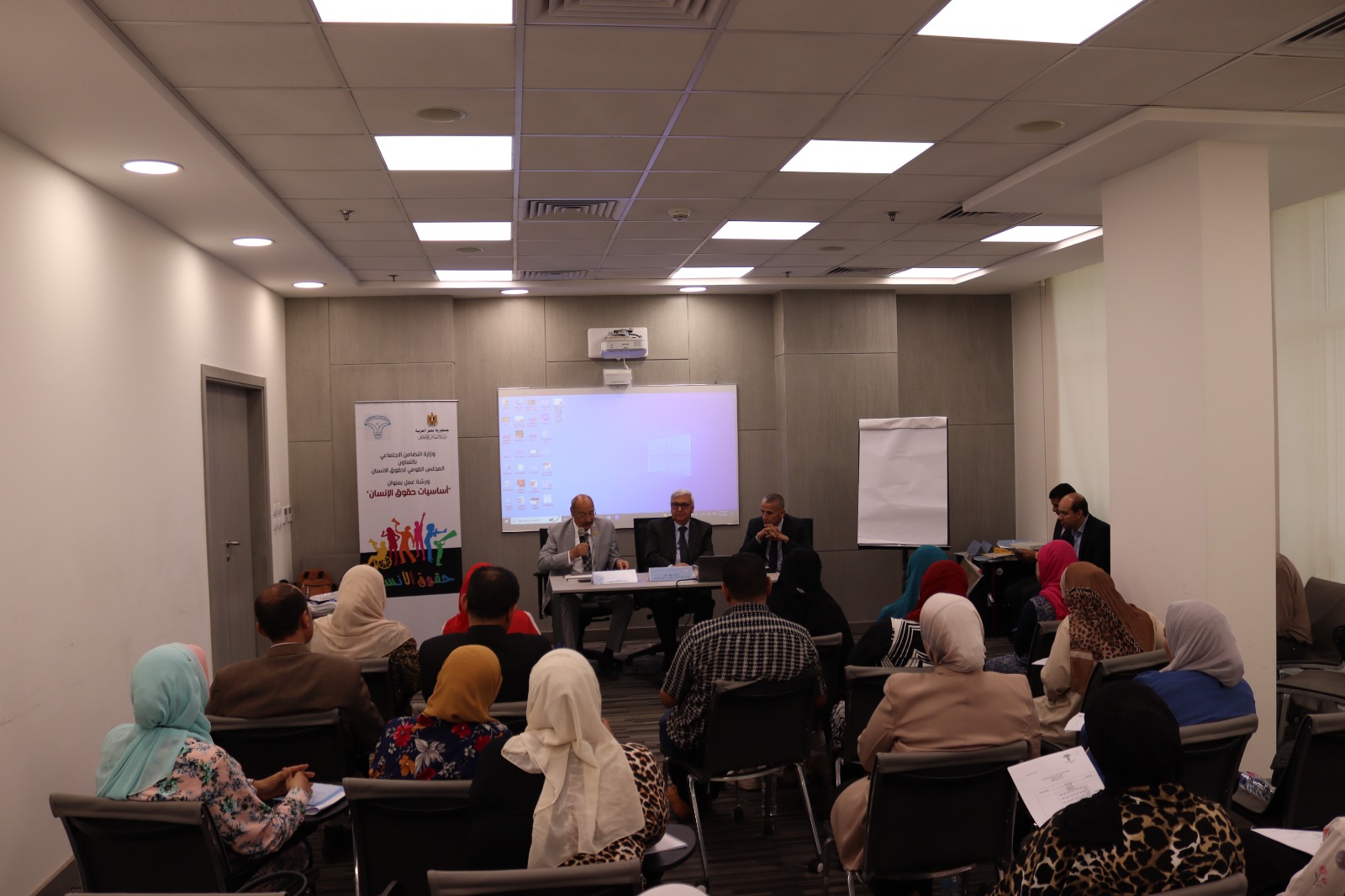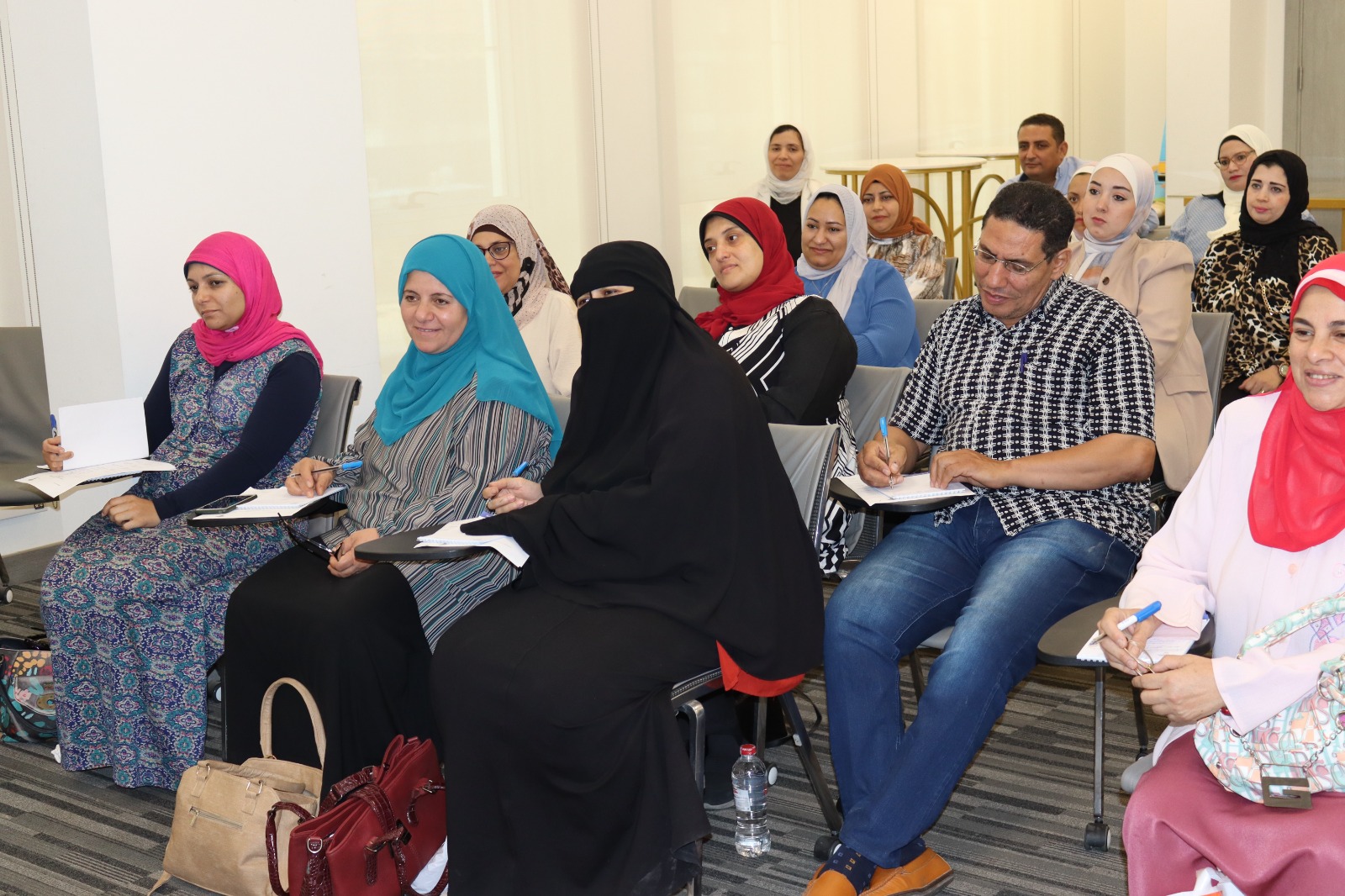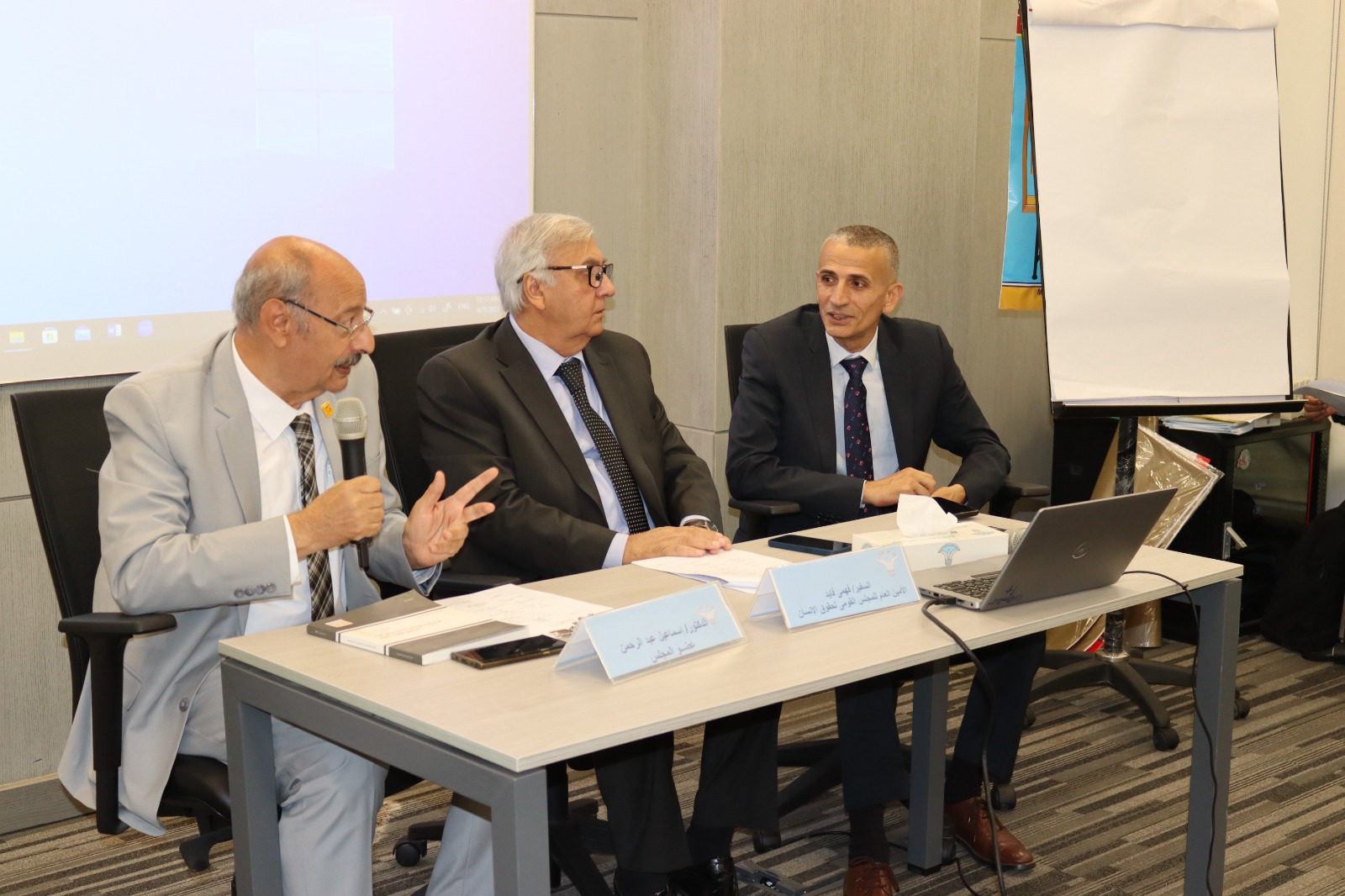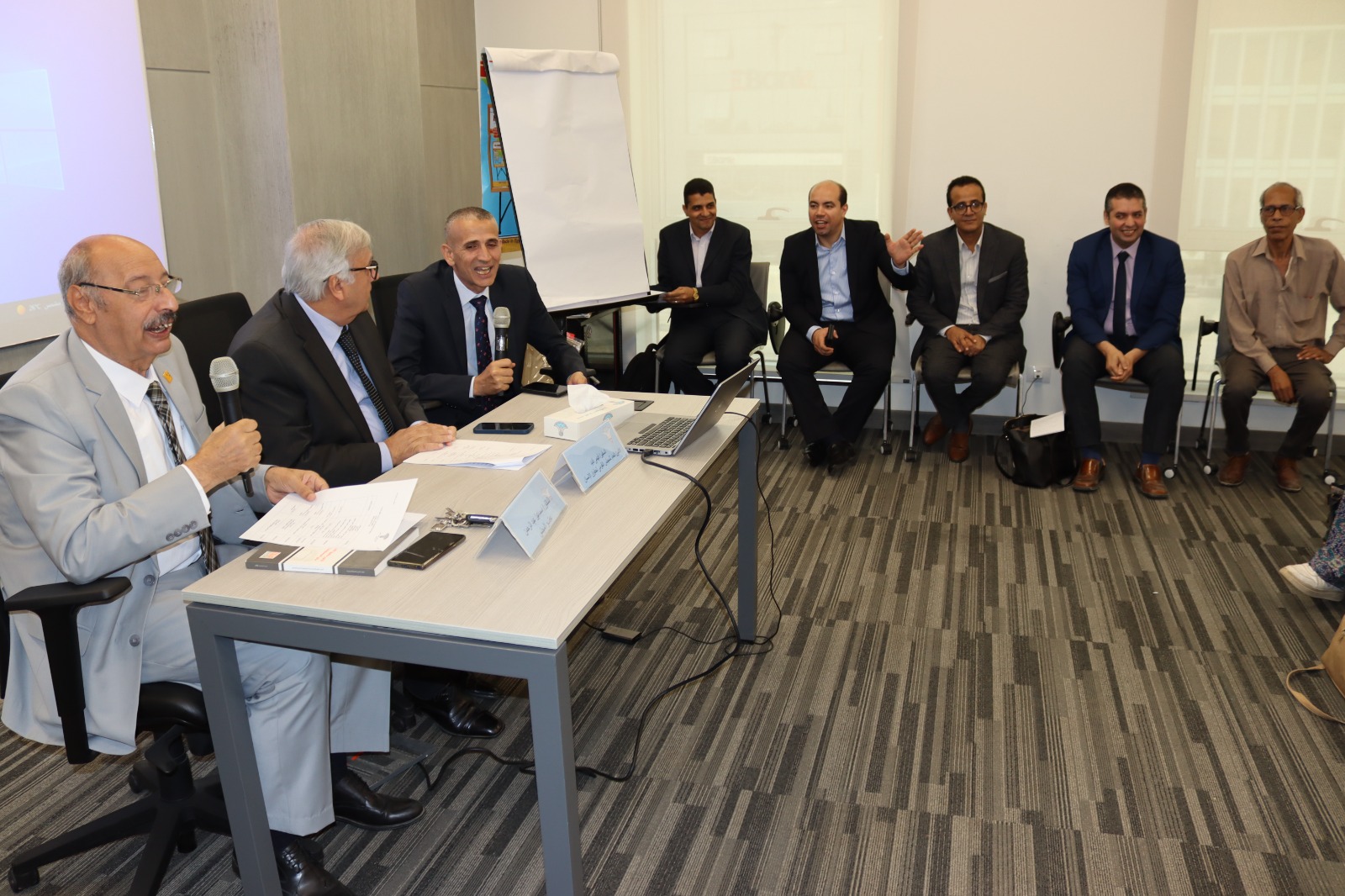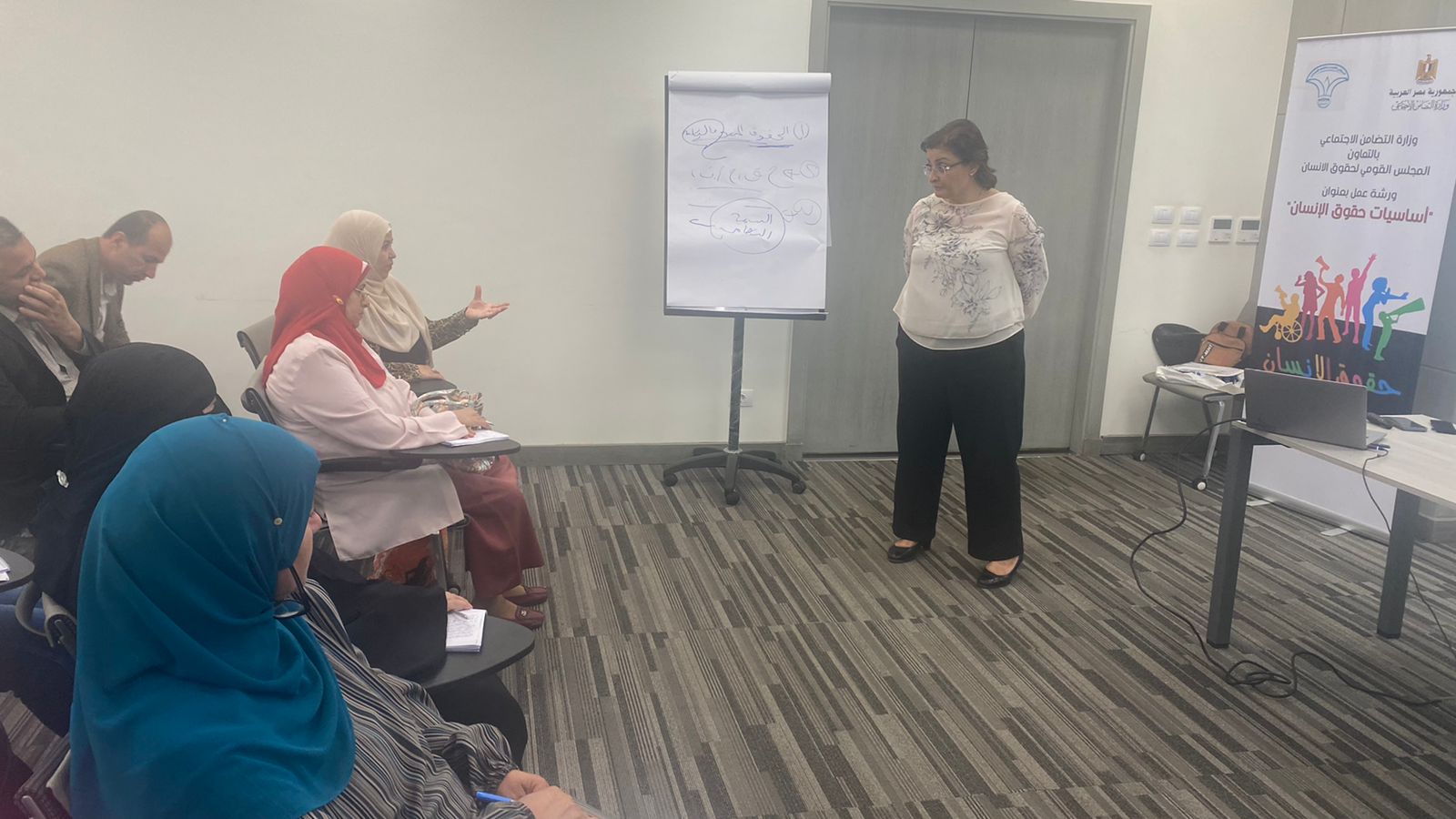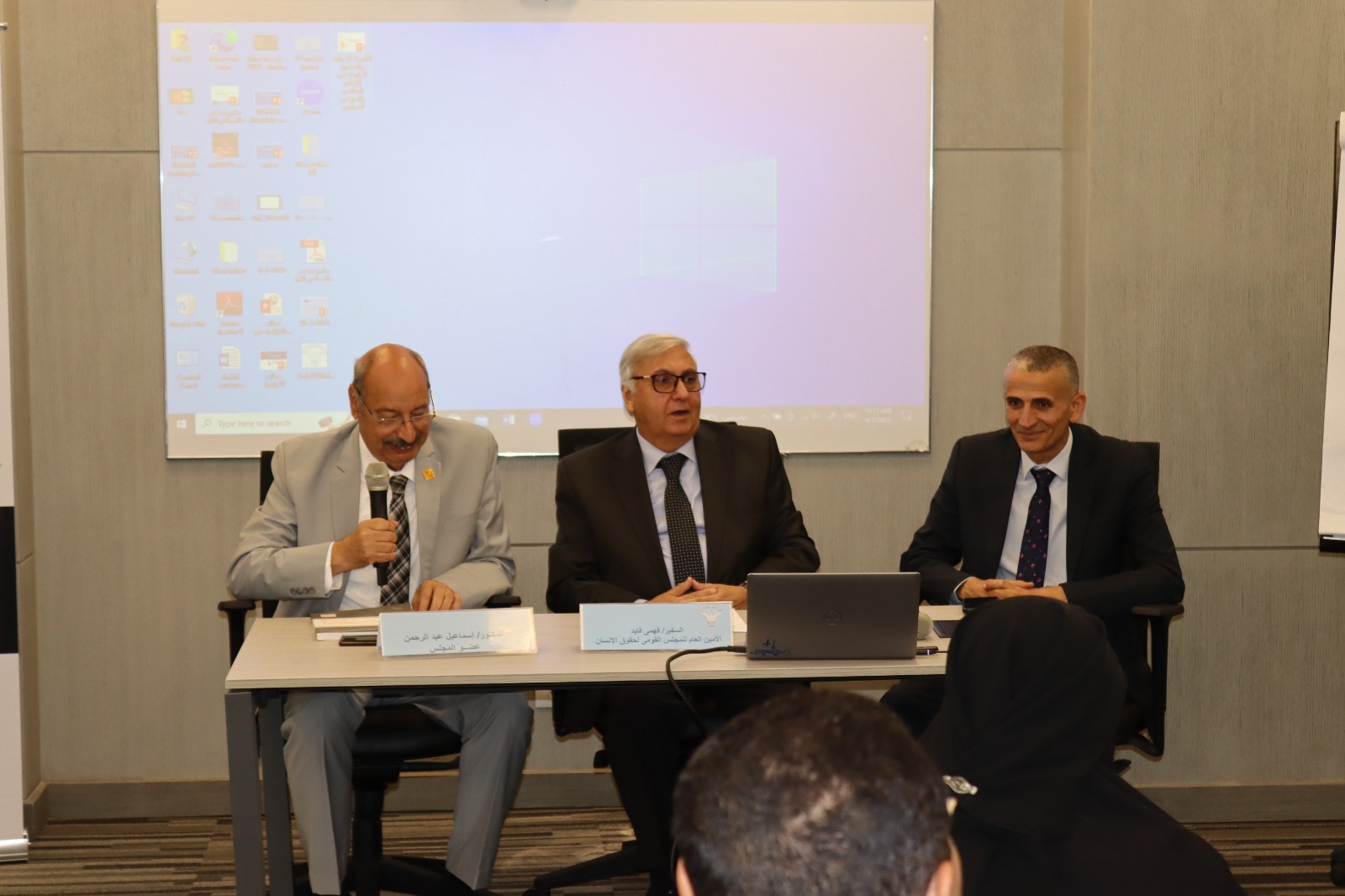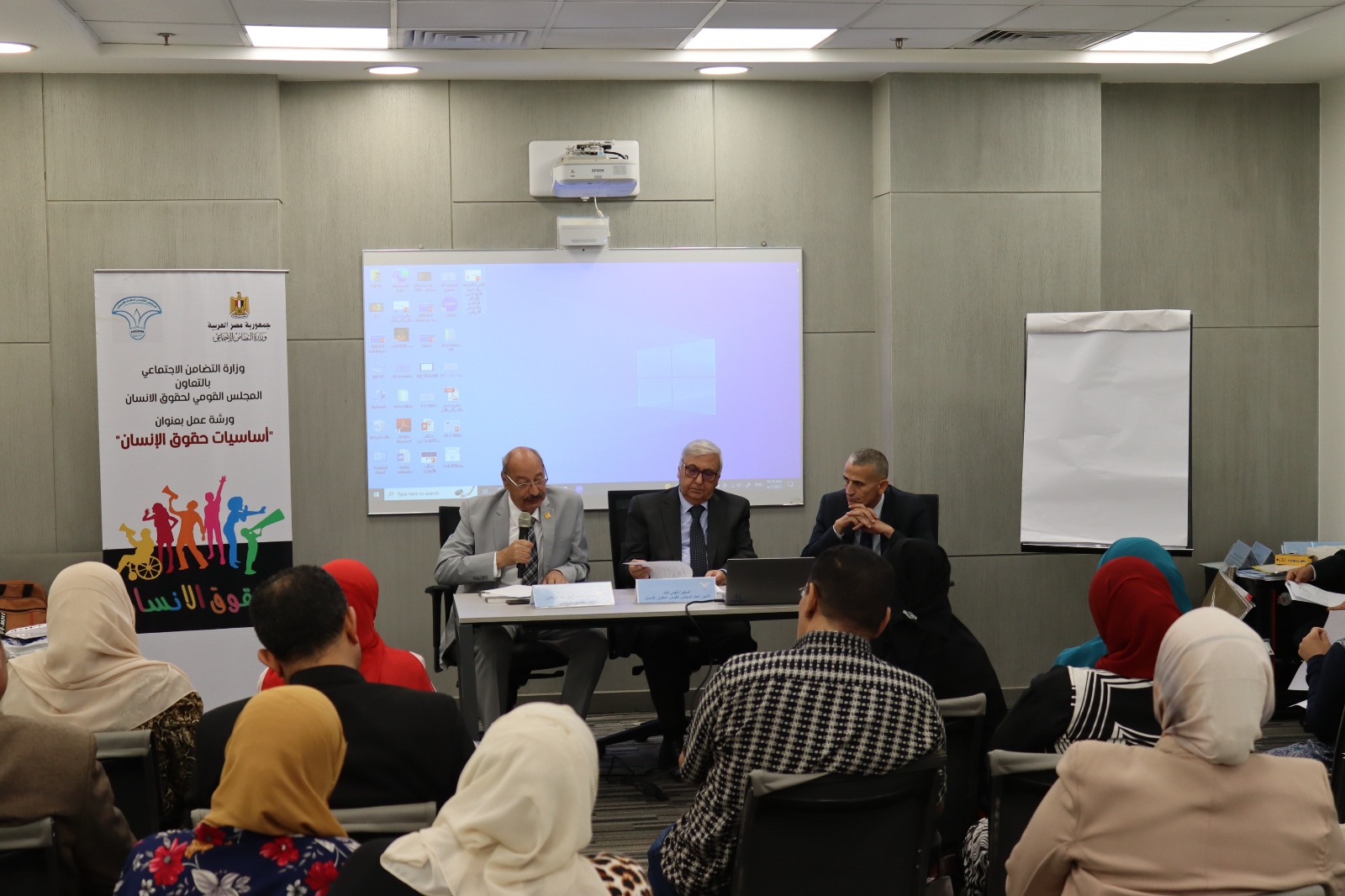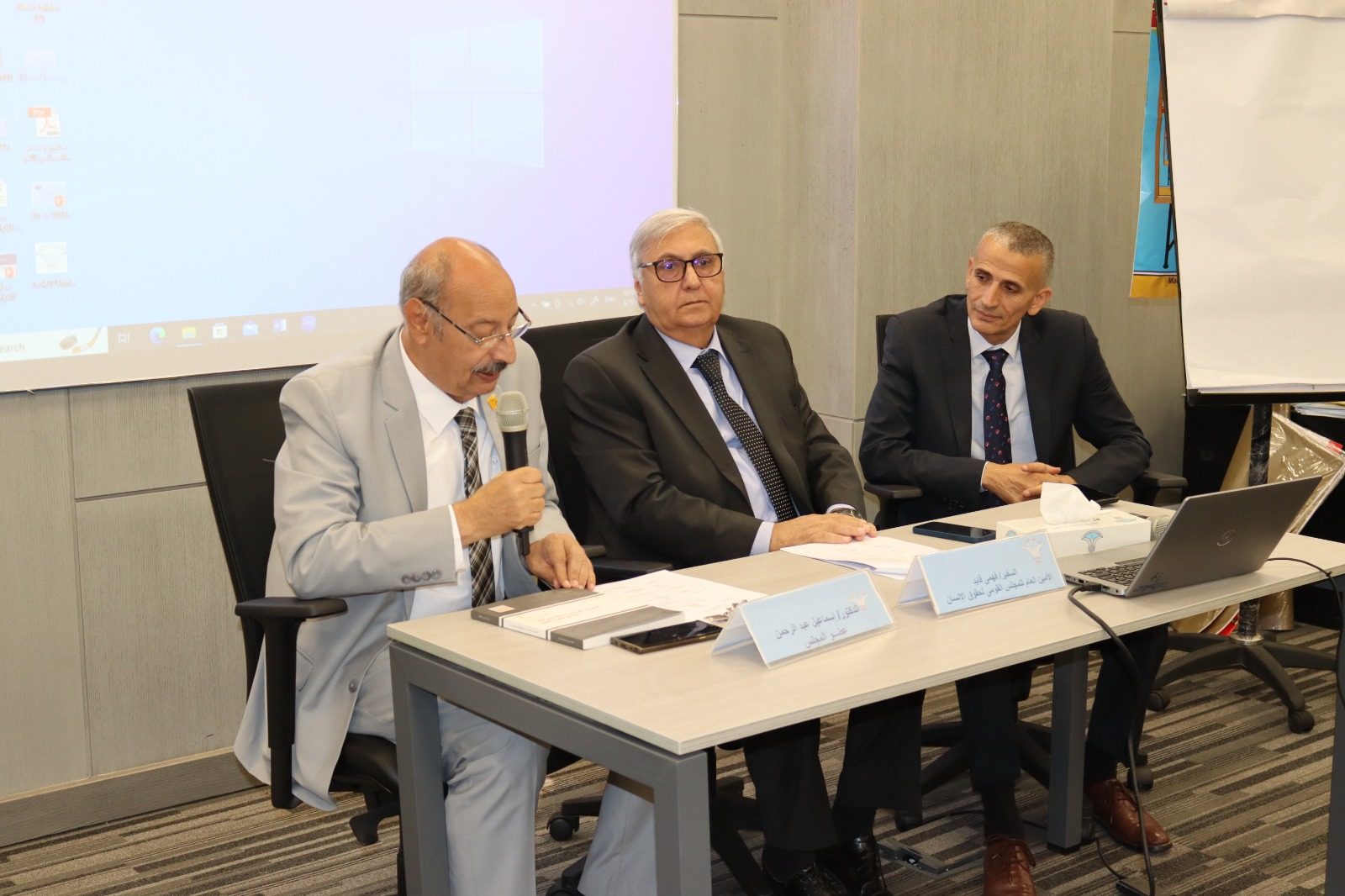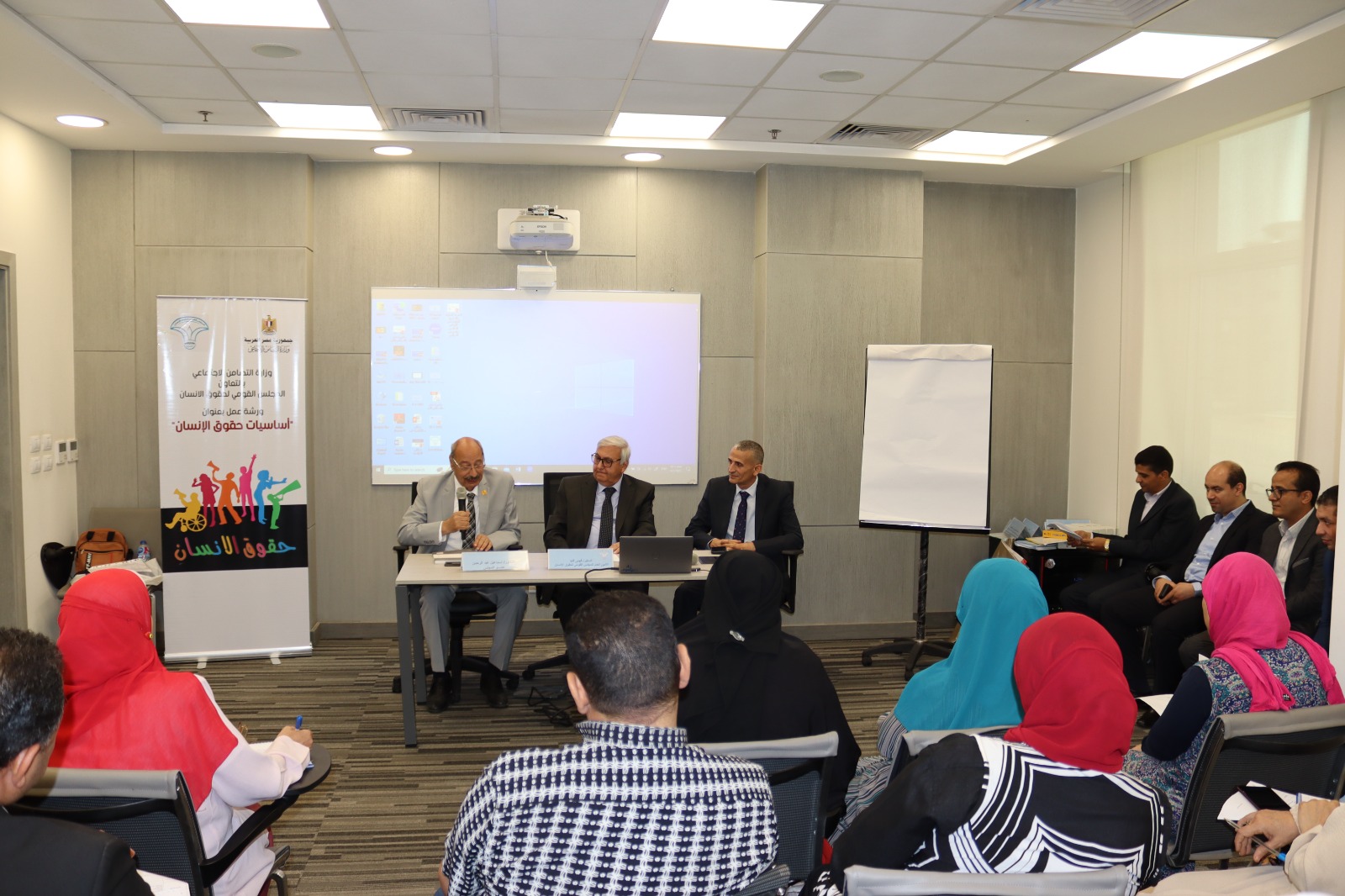The National Council for Human Rights holds the third course to build the capacity of workers at the Ministry of Social Solidarity
The National Council for Human Rights (NCHR) held the third training course on the basics of human rights in cooperation with the Ministry of Social Solidarity.
Ambassador Fahmy Fayed, Secretary-General of NCHR, and Dr. Ismail Abdel Rahman, member of NCHR and supervisor of the Training and Capacity Building Department, inaugurated the session yesterday, Wednesday, which comes within the framework of the cooperation protocol signed with the Ministry of Social Solidarity, in order to build the capacities of the Ministry's employees on the human rights component.
The training began by welcoming the attendees and expressing thanks and appreciation to Minister Nevin Al-Qabbaj for her continuous keenness to cooperate with NCHR. The Secretary-General indicated the independence of NCHR in exercising its role and competencies and the importance of working and cooperating with all governmental and non-governmental parties with regard to capacity building in spreading the culture of human rights and their contribution to Changing concepts.
In the same context, the Secretary-General presented NCHR multiple functions and activities during the past year, including prison visits, legislative proposals, and follow-up of dramas that comply with human rights standards to provide solutions to it.
Fayed affirmed NCHR participation in the National Dialogue in the various concerned committees and the active participation of all parties involved.
Dr. Ismail Abdel Rahman, a member of NCHR and supervisor of the training department, reviewed the components of the training content, which included (what are human rights, introducing NCHR, the concept of the International Bill of Human Rights, preventing discrimination and combating hate speech, the International Convention on Persons with Disabilities, introducing the national strategy For human rights, the council's mechanism for dealing with complaints, human rights in the Egyptian constitution.
23 trainees participated in the training, including 19 female trainees working in leadership positions in the ministry, such as directors of citizen service departments, heads of central departments in the ministry's public office, and social workers. The training was provided by the members of NCHR and the directors of the specific committees and units specialized in NCHR.





 English
English
 Arabic
Arabic
 French
French
